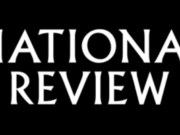In 2009, before the Supreme Court, the government claimed it could ban the publication of a book, if that book contained a single sentence calling for the election or defeat of a candidate. The basis for that extraordinary claim was a law prohibiting corporations from making political expenditures. Books, of course, like movies, newspapers, and other common forms of mass communication, are mostly published by corporations.
The Supreme Court ruled against the government in a major victory for free speech – the now-famous Citizens United decision. It sided with a nonprofit (those are corporations, too) that wished to distribute a film criticizing then-candidate Hillary Clinton. A film about a prominent political figure is exactly the type of political expression that the First Amendment was meant to protect. It’s also an example of the kind of speech that would be subject to wide-ranging censorship if the Constitution were amended to reverse the decision.
Laws banning corporate speech do not just silence major for-profit firms. They also silence nonprofit advocacy groups. Justice Anthony Kennedy listed examples of speech that would constitute a felony prior to Citizens United: “The Sierra Club runs an ad, within the crucial phase of 60 days before the general election, that exhorts the public to disapprove of a Congressman who favors logging in national forests; the National Rifle Association publishes a book urging the public to vote for the challenger because the incumbent U. S. Senator supports a handgun ban; and the American Civil Liberties Union creates a Web site telling the public to vote for a Presidential candidate in light of that candidate’s defense of free speech. These prohibitions are classic examples of censorship.”
Americans form groups to pursue shared goals. It is more difficult, and sometimes impossible, for supporters of a cause to succeed if they are prevented from working together and pooling resources. Restricting nonprofit speech also restricts the rights of people who want to hear those groups’ views. Indeed, many voters turn to organizations they trust to help them evaluate candidates and policy proposals. In this way, allowing nonprofits to speak benefits voters.
We should also think twice before silencing for-profit businesses. If a candidate’s policies would force an employer to conduct layoffs, voters should know that. No one is in a better position than the company itself to speak about the election’s impact on its business.
Nevertheless, in the years since Citizens United, the decision has become an easy target for critics who want politicians to pipe down and campaign donors to lose influence. Each election Americans are annoyed by campaign ads, and many are offended by the amount of time candidates spend fundraising. The Supreme Court making it easier to fund political ads rubs many the wrong way.
But while exasperation with American political campaigns may be understandable, welcoming more government control over the political process would be a grave mistake. For one, the threat of “money in politics” is often overblown. The social science evidence is clear that donors give to officeholders who already share their views, not that officeholders change votes to get donations. But when government has enormous power, people will spend a lot to try to assure that those officeholders agree with them. Power corrupts, no matter how much is spent to get it, so limiting spending does not stop corruption.
It’s important to realize that campaign spending doesn’t guarantee results. Many candidates who outspend their opposition still wind up losers on Election Day – just ask Jeb Bush and Hillary Clinton. In fact, more campaign spending can be a good thing for democracy. Significant evidence suggests that campaign ads make voters more interested and knowledgeable about elections and are particularly useful at activating voters who are otherwise disengaged. Whether in politics, technology, or art, it’s a simple reality that new ideas rarely get off the ground without some financial backing.
Allowing government control over political spending would deprive Americans of a valuable and commonly used means of participating in democracy. Being an engaged citizen is about more than showing up to vote. Making government responsive to the public is a full-time job, and Americans who want to get involved before and after Election Day rely on organizations that share their values to help coordinate their efforts. Those organizations count on the First Amendment to defend not only their right to speak, but the raising and spending of money necessary to make their speech heard.
An amendment reversing Citizens United would be most dangerous for critics of powerful politicians, not those already with money and power. History teaches us that giving government power over speech, however indirect, inevitably harms marginalized groups and critics of the government. America’s strong protections for political speech were developed by generations who discovered that, unless the First Amendment was given a robust interpretation, in practice it was easy for governments to shut down their critics. Those on the outskirts of acceptable political opinion, from civil rights activists to Communist Party members, found themselves at risk of being arrested, fined, and subject to retribution simply for speaking their minds.
This history should inform the current debate. Government officials typically do not go after the message they want to censor directly. Instead they target the methods employed by groups they wish to stop. Political spending is one method that is always under attack.
The problems with our government are not going to be solved by limiting speech. In a country with millions of people, spreading a message to a mass audience requires raising and spending money. A constitutional amendment weakening that ability would be a terrible mistake.














